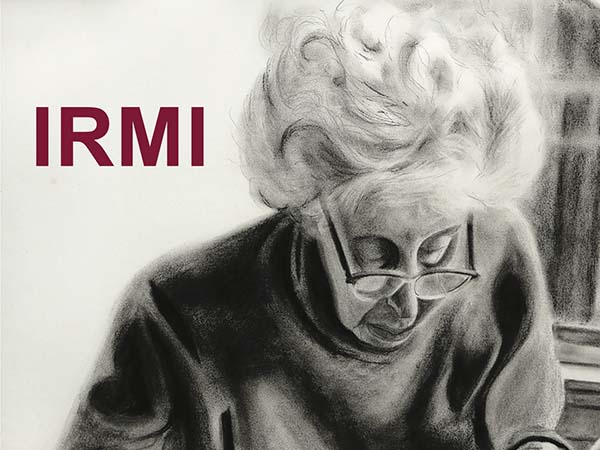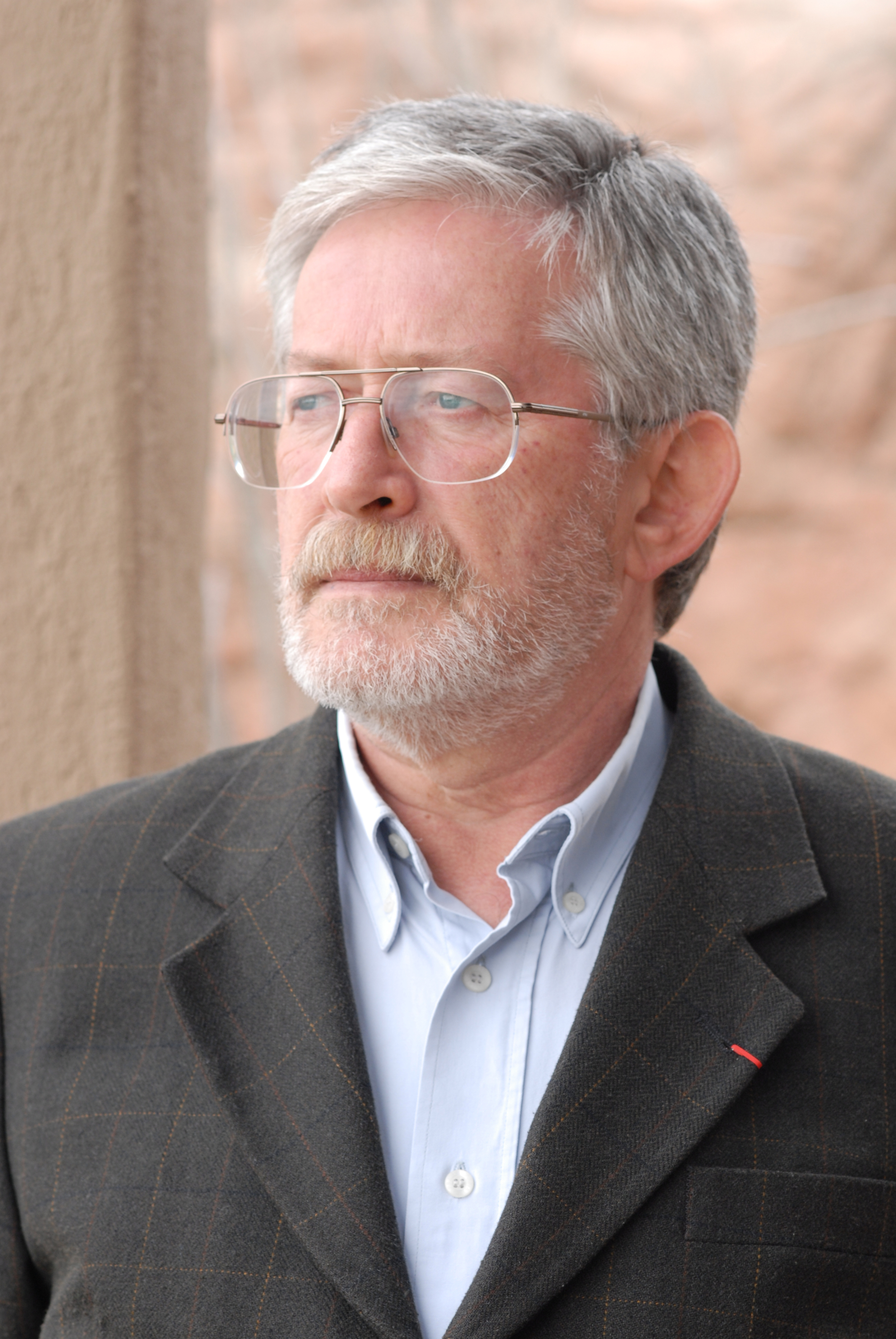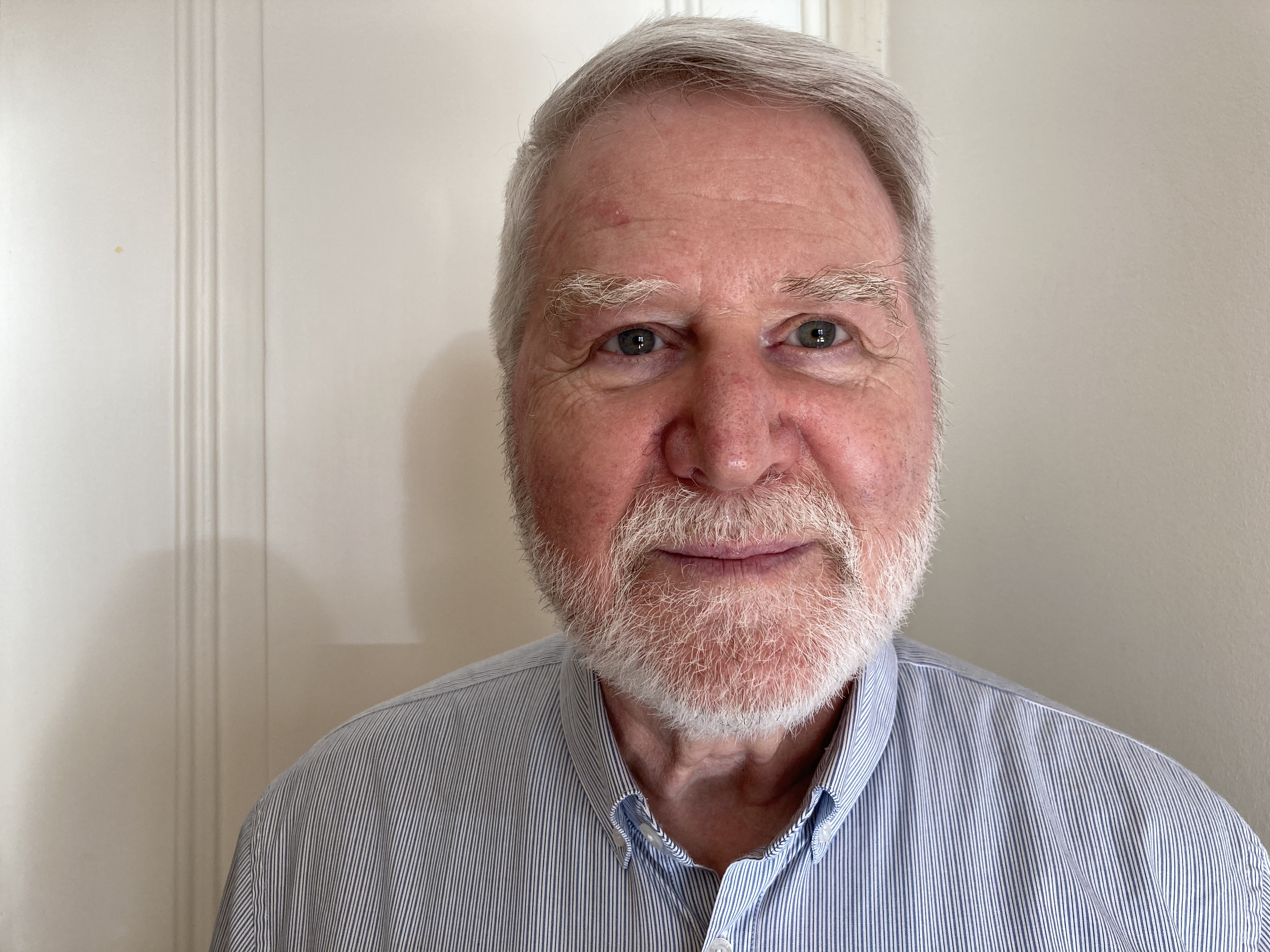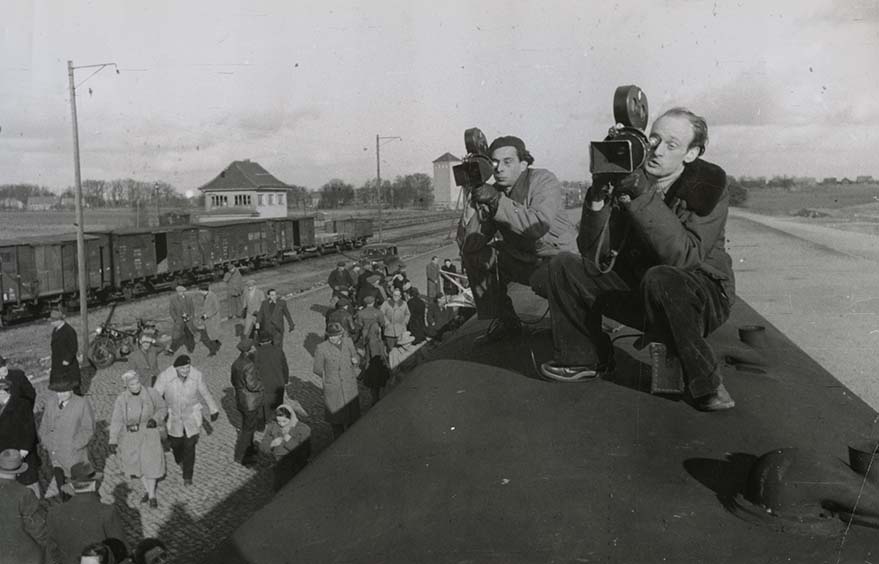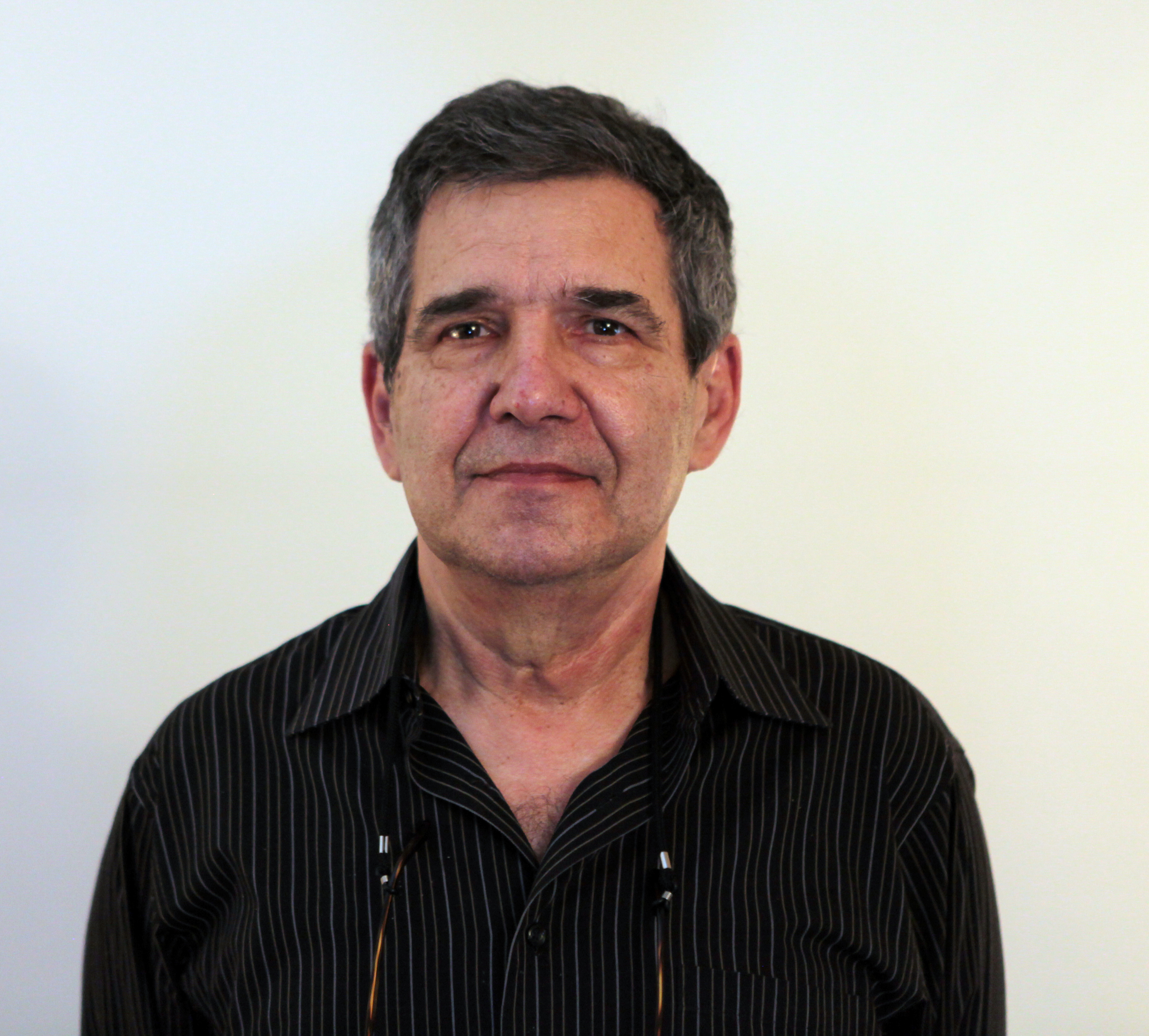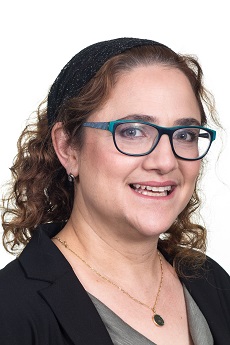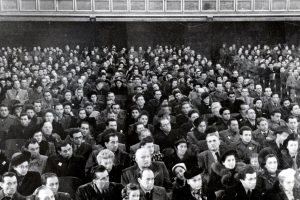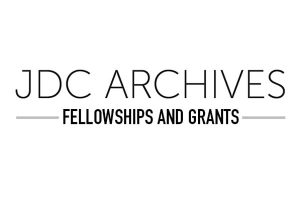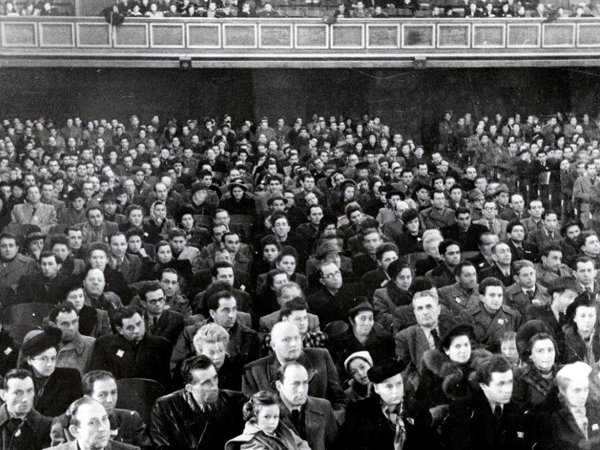
JDC Archives Online Events: Fall 2020-Winter 2021
Please join us at our upcoming virtual programs!
The JDC Archives is offering an array of online public programs in the coming months. These events are listed below; please register for each one individually by clicking on its RSVP link. Recordings of past programs are available on the JDC Archives Youtube channel.
FILM SCREENING:
IRMI
Wednesday, October 28, 2020
7:00pm–8:30pm (EDT)
In 1906, Irmi Selver was born into an affluent Jewish family in Chemnitz, Germany, where she grew up, married and began her own family. Nothing prepared her for the upheavals and tragedy that were in store for her, or for the many times she would have to start her life over on unfamiliar ground.
IRMI is a deeply personal film made by a daughter who is inspired by her mother’s story and her spirit. It explores the way in which unexpected events and chance encounters can both shape a life and reveal its true nature. Using Irmi’s own memoir—beautifully read by the actress Hanna Schygulla and with a richly emotional score by composer Todd Boekelheide—IRMI takes us on her unique journey. It is a portrait of a woman. whose strength, resilience and perhaps most stunningly, whose joie de vivre could not be vanquihed even in the face of unimaginable loss.
The screening will be followed by a Q&A with filmmakers Veronica Selver and Susan Fanshel.
Veronica Selver is a filmmaker who has specialized in social issue documentaries. Her own films include KPFA On the Air, Raising the Roof, and Cape Song. Films she co-directed and co-edited include You Got to Move, First Look, and Alfred I. duPont–Columbia University Excellence in Broadcast Journalism winner Word is Out. Selected editing credits include the award-winning films On Company Business, Harry Bridges: A Man and His Union, Absolutely Positive, Coming Out under Fire and Academy Award nominated Berkeley in the Sixties.
Susan Fanshel is an independent documentary filmmaker and editor whose films include: A Weave of Time, The Story of a Navajo Family; Nevelson in Process; Voulkos and Company; Made in the Bronx; Six American Families: The Kennedy’s of New Mexico; and The Odyssey Tapes. The films she has edited have received the highest honors in broadcast journalism including: The George Foster Peabody Award, The Alfred I. duPont–Columbia University Award; The Emmy Award; The John O’Conner Film Award, and The Banff World Television Award.
The event is co-sponsored by JDC Ambassadors.
WEBINAR:
Jewish Resilience and Resourcefulness During the War in Bosnia-Herzegovina, 1992-1995
Thursday, November 12, 2020
12pm–1:30pm (EST)
As war broke out in Sarajevo in April 1992, the small Jewish Community there found itself in a strange position. Trusted at home by all sides to the conflict and connected internationally for years with the Joint, the local Jewish leadership moved quickly into action: pulling in volunteers to help from all ethnic groups; setting up a significant program of humanitarian aid (food, water, clothing, pharmaceuticals, and medical care) for people of all faiths; organizing evacuations of those endangered by air and land; setting up an overland supply system during the siege of the city; and establishing radio-telephone and mail communication with the outside world for all to use. At the very center of these efforts was the Community President, Ivan (Ivica) Ceresnjes. Coordinating supply efforts and assuring housing and care for the evacuees from the outside was the JDC Country Director, Yechiel Bar-Chaim. Together they will tell their stories on this special JDC Archives Webinar.
Ivan Čerešnješ, an architect and civil engineer, was the President of Jewish Community in Sarajevo at the beginning of the war in Bosnia following the dissolution of the Former Yugoslavia. He organized the evacuation of all endangered members of the Jewish Community—the elderly, the sick, and children. In addition, he welcomed many other citizens of Sarajevo into the escape convoys, enabling over 3,000 people to get out of the bombed city. He also organized convoys that brought desperately needed food, medicine, and clothing into the besieged city and established a small medical clinic in the Jewish Community.
Čerešnješ was bestowed with the Chevalier de l’ Ordre de la Legion d’Honneur of the French Republic in 1994 for his actions during the war in Bosnia.
Yechiel Bar-Chaim directed programs on behalf of the Joint from 1989-2014, initially for Jews coming to Vienna from the then-Soviet Union and for Jewish communities in what then constituted the countries of Yugoslavia and Czechoslovakia and later Tunisia. During the wars that led to the disintegration of Yugoslavia, he coordinated JDC’s efforts to care for Jewish evacuees from the combat zones and helped organize the provision of humanitarian aid to civilians still trapped within. At the time he was one of the few non-governmental persons going back and forth between the belligerent countries to assure the well-being of those most badly affected by the different conflicts.
FILM SCREENING:
A Tale of Two Worlds (1941) & A Day of Deliverance (1949)
Historic films produced by JDC
Wednesday, December 2, 2020
2:00pm-3:30pm (EST)
A Tale of Two Worlds (1941) is a promotional film outlining JDCs response to the Nazi advance in Europe, showing aid to refugees around the world. Spanning the globe through eyewitness accounts, the film addresses the situation of Jews across Europe including Germany, Austria, Czechoslovakia, France, Belgium, Holland, Denmark, Poland, Lithuania, and Portugal, as well as in Palestine, Shanghai, and Latin America, while highlighting JDC’s work in partnership with other agencies.
A Day of Deliverance (1949) provides an overview of JDC activities on immigration, aid and assistance to displaced Jews in the late 1940s in parts of Europe, North Africa, and the Middle East. The film includes rare footage of Holocaust survivors from the Bergen Belsen DP camp departing Germany, Yemenite Jews living in Aden, and detainees leaving the Cyprus detention camps, all traveling to the newly formed State of Israel.
The screening will be followed by a Q&A with Linda Levi, Director of JDC’s Global Archives.
JDC Archives Historic Film Collection: Throughout its history, JDC has documented its work, commissioning films of its relief operations and the historic circumstances to which it responded through audiovisual media. These rare films now constitute a unique eyewitness account of the diverse Jewish communities, many of them now vanished or significantly diminished, throughout the 90 countries where JDC has worked over the past century. In recent years, the JDC Archives has digitized select items in this collection, along with audio recordings and videos.
WEBINAR:
JDC’s Initial Response to European Refugees in Postwar Shanghai
Wednesday, January 13, 2021
2:00pm– 3:30pm (EST)
In this talk, Dr. Fred Lazin will examine JDC’s efforts to assist Jewish (and other) European refugees in Shanghai, China, following the Japanese surrender in August 1945. It will cover the tenure of the first two postwar American directors of JDC operations in Shanghai. Manuel Siegel, imprisoned by the Japanese during WWII, took charge of JDC operations as the Japanese surrendered. Charles Jordan replaced him in January 1946 and remained through April 1948.
The lecture will explore the changing perception of these directors about the plight of the refugees during this period and the perceived attitudes and preferences for resettlement among the refugees. The lecture will also shed light on the policies of the American Consulate in Shanghai, as well as those of the UNRRA, CNRRA, Nationalist Government, and local municipal authorities.
Fred Lazin is Professor Emeritus at Ben Gurion University of the Negev in Israel. He earned a Ph.D. in Political Science from the University of Chicago. He joined the faculty at Ben Gurion University in Israel in 1975 and retired in 2010. In 2018, he was a Visiting Fellow at Fudan University in Shanghai, China. He has taught at the Hebrew University, UCLA, GWU, Cornell, Tufts, and CUNY. He recently became a member of the International Advisory Board, Shanghai Jewish Refugees Museum. He has authored over eighty scholarly articles and chapters in books and written and edited twelve books.
WEBINAR:
“For You Shall See The Land Before You, But You Shall Not Go There” (Deuteronomy 32:52): The Role of JDC in the Rehabilitation of Cyprus Detainees 1946-1949
Wednesday, February 10, 2021
12:00pm–1:30pm (EST)
During the summer of 1946, the British Mandate government in Palestine decided to intercept the Ma’apilim, illegal immigrants, and redirect them to internment camps in Cyprus. Conditions in the camps were very difficult, especially for women and children.
JDC, a large Jewish philanthropic organization, purportedly apolitical and neutral, received permission from the British authorities to work in the camps to supplement the meager assistance provided by the British. JDC staff provided for most of the detainees’ needs, including welfare and medical aid as well as extra food rations, and educational resources. JDC staff endeavored to meet the inmates’ cultural and religious needs as well.
The talk will focus on the story of the survivors who were interned in Cyprus who were so close to entering Israel and yet unable to reach it, bringing with them both traumatic personal histories and political aspirations. At the same time, it will show how JDC functioned as a neutral organization and the role it played in the refugees’ rehabilitation.
Dr. Anat Kutner is the Director of JDC’s Jerusalem Archives. Previously, she was a project manager at the National Library of Israel, and later directed a department at the Yad Vashem Archives. She has a PhD in History from Bar Ilan University. Her research interests include the role of JDC and its work in the contemporary Jewish world and in the history of the State of Israel. JDC’s Jerusalem Archives houses the records of JDC’s work in Israel and of JDC overseas offices. This includes the records of JDC’s Operation in Cyprus.
